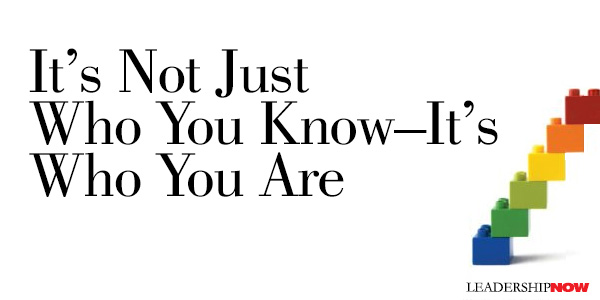 |
 |
09.13.10

It’s Not Just Who You Know—It’s Who You Are
BUILDING relationships is about others. It’s more than networking says Tommy Spaulding. “When a heart centered on others drives your actions, networking is replaced by something far, far more powerful—Netgiving. Networking is all about you. Netgiving is all about others.” It's from this sound perspective that Tommy Spaulding writes It’s Not Just Who You Know. It’s Not Just Who You Know is both an inspiring biography and a lesson in initiative and building genuine relationships. Quite often we meet people and build relationships by chance; Spaulding doesn’t believe we should leave them to chance. He has seen over and over again that “an investment in a short-lived and seemingly random encounter can produce unforeseeable yet significant benefits.” So we need to “develop an attitude of openness” and approach “every person we encounter with an awareness of the hidden potential to develop a relationship.”Spaulding thinks of relationships in terms of a five story building. Level 1 is purely transactional—meet and greet. Level 2 you share basic personal information. Level 3 relationships, while superficial, relationships have developed an emotional comfort level that goes beyond sharing facts, news weather and sports and involves sharing opinions and feelings with others. Level 4 relationships are marked openness and candidness. We respond in ways that show that we value the relationship for its own sake. The relationship reflects an ability to work through and a willingness to at times, put others interests above your own. Level 5 relationships are our closest and most intimate relationships. They are based more on giving than on getting. “They are relationships based on a shared empathy—an intuitive understanding of each other's needs, even those that aren't necessarily expressed…. In Fifth Floor relationships, we become confidants, advisers, and partners in helping the other person achieve their greatest potential.” Spaulding says the goal is to be able to develop the ability to build relationships at all five levels and he offers practical advice for expanding our relationships. It’s not done though through manipulation. Motives matter. Relationships built on getting what you can from others have no lasting value and will more than likely collapse when you need them the most. You can judge your motives by filtering them through the following traits: authenticity, humility, empathy, confidentiality, vulnerability, generosity, humor and gratitude. In building genuine relationships, says Spaulding, who you are is far more important than what you do. Some of his advice:
As important, Spaulding offers five relationship warnings such as choose wisely and the relationship cancer you must avoid at all costs. He says that Dale Carnegie’s How to Win Friends and Influence People taught him how to get people to fall in love with him. But there is more. We can fall in love with others if we remember it’s not about us. It’s not just who you know—it’s who you are. 
Posted by Michael McKinney at 01:08 AM
|
BUILD YOUR KNOWLEDGE
 

How to Do Your Start-Up Right STRAIGHT TALK FOR START-UPS 
Grow Your Leadership Skills NEW AND UPCOMING LEADERSHIP BOOKS 
Leadership Minute BITE-SIZE CONCEPTS YOU CAN CHEW ON 
Classic Leadership Books BOOKS TO READ BEFORE YOU LEAD |